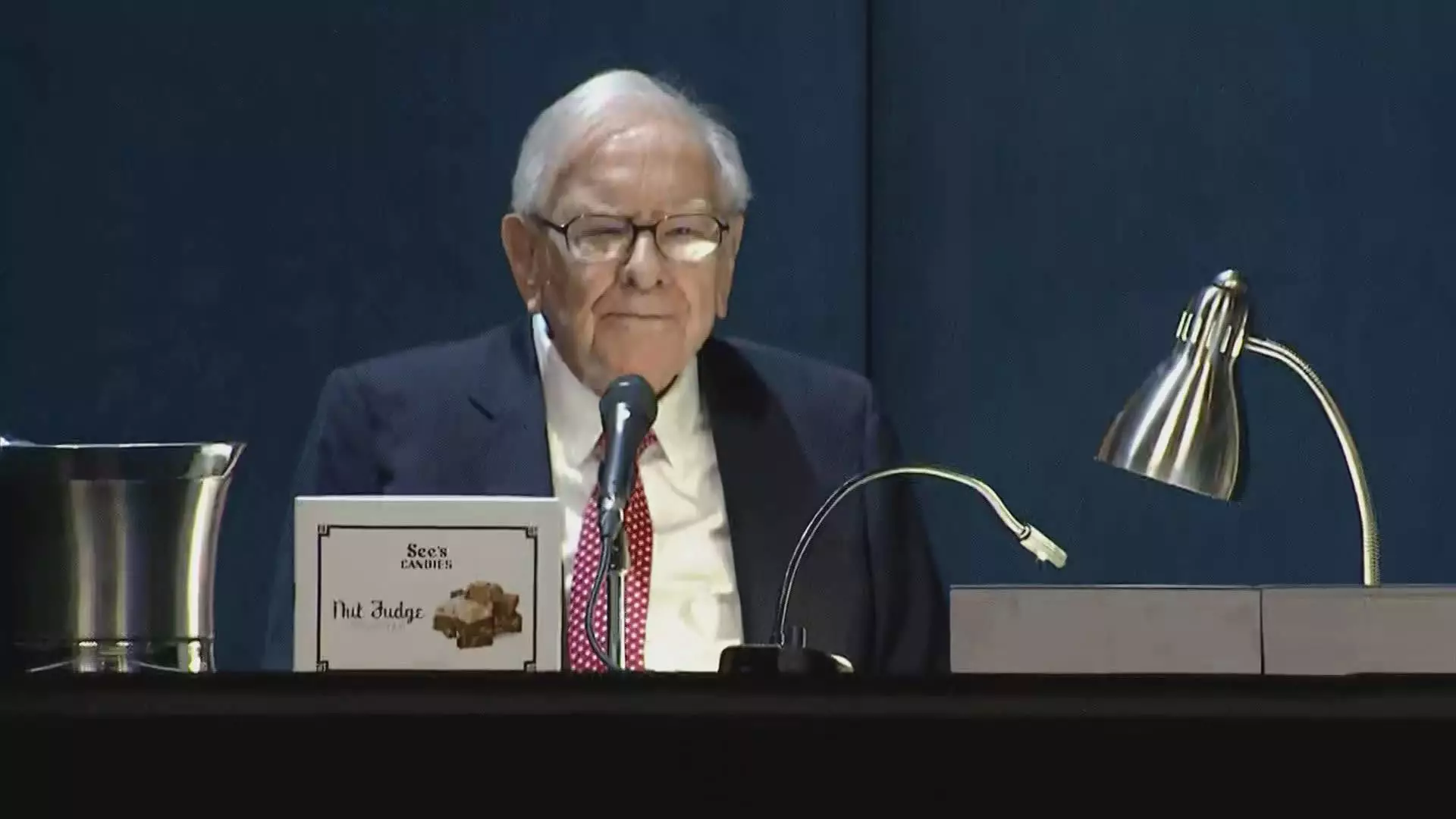Warren Buffett’s recent reduction of his stake in Apple Inc. signifies a noteworthy shift in Berkshire Hathaway’s investment strategy. Following a series of sales, Berkshire’s Apple shares valued at $69.9 billion at the close of September mark the fourth consecutive quarter of downsizing. This unprecedented move has resulted in the divestiture of approximately 25% of the holding, leaving the conglomerate with just under 300 million shares—down by a staggering 67.2% from the same quarter last year. Such a drastic reduction prompts questions about Buffett’s motivations and the broader implications for both Berkshire and the tech sector.
The rationale behind Buffett’s continuous divestment of Apple stock remains somewhat ambiguous. Analysts conjecture that high valuations, alongside a desire to mitigate concentration risks, could be significant factors. Historically, Apple’s position had grown to encompass nearly half of Berkshire’s equity portfolio—a level of dependency that is concerning for a diversified investment firm. During the annual meeting in May, Buffett suggested that potential tax reforms aimed at increasing capital gains taxes may have influenced this selling trend. The possibility of a rising tax burden has bolstered the case for both profit-taking and strategic portfolio adjustments.
However, the scale and consistency of these sales indicate a complex decision-making process at play. While tax considerations might be at the forefront, it seems unlikely that such motives alone would justify the extensive offloading of an investment that Buffett had once heralded as transformative for his conglomerate.
The Evolution of Buffett’s Investment Philosophy
Buffett’s relationship with Apple is particularly fascinating, considering his historical reluctance toward technology investments. Until the mid-2010s, Buffett often cited technology companies as outside his “circle of competence.” His eventual pivot to investing in Apple reveals an evolution in his philosophy—embracing a business model characterized by customer loyalty and recurring revenue streams through devices like the iPhone. This strategic shift was facilitated by the insights of his investment lieutenants, Ted Weschler and Todd Combs, who recognized Apple’s potential and persuaded Buffett to enter the tech space.
As Apple ascended to become Berkshire’s largest equity holding, Buffett lauded it not simply for its financial performance but for its unique market positioning. His affinity for the brand underscored a significant transformation in his investment outlook, one that prioritized consumer behavior and brand loyalty over traditional metrics.
The ramifications of Buffett’s divestment are significant not just for Berkshire Hathaway but also for the broader investment landscape. With Apple shares having risen 16% year-to-date—albeit trailing the S&P 500’s 20% gain—Berkshire’s strategic decisions may send ripples across the tech industry. Investors may interpret Buffett’s actions as a signal of confidence or concern in Apple’s long-term trajectory, raising questions about future performance in an increasingly volatile market.
Simultaneously, Berkshire has accumulated a record cash pile of $325.2 billion, raising speculation about potential future investments or acquisitions. The strategic pause on share buybacks reflects a cautious approach, hinting at an interest in preserving capital for opportunities yet to materialize.
In summation, Warren Buffett’s divestiture of Apple shares articulates both a personal evolution as an investor and strategic recalibrations within Berkshire Hathaway. As market dynamics shift and tax policies loom, understanding the motivations and implications behind such significant investment decisions remains crucial for investors and analysts alike.

